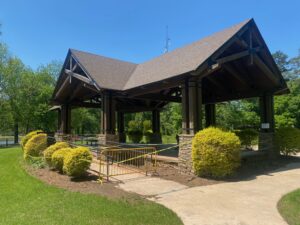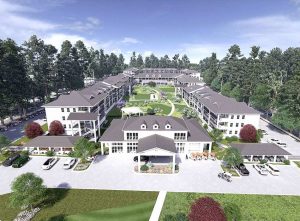Zoning changes OK’d, banning celltowers from conservation-zoned parcels
New, tougher restrictions on new cellphone towers coming to Peachtree City will take a bit longer than planned.
Thursday night the City Council tabled the new ordinance and extended a moratorium on new celltower applications until Aug. 19.
Council approved zoning changes that will forbid cellphone towers from being erected on land zoned open space-conservation. Included in the changes is a requirement that celltowers be allowed as conditional uses in zoning districts light industrial, general industrial and open space-public.
City resident Mary Giles, the only person in the audience when the issue was finally tacked after 10:30 p.m. Thursday night, said she opposed celltowers being allowed on open space-public property because that would allow celltowers to be erected in city recreation areas and parks.
But if that were to happen, the city council must not only approve such a plan but also a lease that could further restrict the towers more so than allowed by zoning, said Community Development Director David Rast.
It was also noted that if the city disallowed open space-public from being used for celltowers, it might endanger the city from a legal perspective because there would be no available sites near residential areas of the city.
Giles said she wasn’t worried about the current City Council, but a future council perhaps making a foolish decision in this regard, particularly as the city’s budget gets tighter when a celltower lease might look more attractive from a fiscal point of view.
Postponement of the new ordinance will allow City Attorney Ted Meeker to review comments made by cellphone companies and groups representing the cellular industry. The new rules will also be reviewed by the city’s planning commission before the matter is brought up for a council vote.
The new ordinance would require all new cell towers and similar telecommunications structures to get final approval from the City Council.
Currently, as long as new celltowers are located in the allowed zoning districts and meet city regulations, they do not require council approval.
City staff is proposing to eliminate current rules that allow new cell towers to be built on land zoned either agriculture reserve or open space-conservation. Instead, such towers could only be built on land zoned light industrial, general industrial or open space-public as currently allowed.
One of the new requirements of the ordinance is for the companies to conduct a visual impact assessment including a balloon test to demonstrate the height of the proposed tower and support facilities. The balloon must be flown for at least eight hours between 7 a.m. and 6 p.m. with the date, time and location of the balloon test made public in a legal advertisement.
Also during the balloon test the wireless company will be required to take photos of the balloon from approximately 200 feet away, with at least four views from the north, south, east and west.
The balloon test is required to be scheduled at first on a weekend, but if it visibility interferes with the test it can be rescheduled to a weekday.
The ordinance also bumps up the distance a tower must be away from an adjacent property line from 200 to 250 feet.
The ordinance also lowers the maximum height of any tower from 199 to 180 feet, as measured from the ground level to the highest point on the proposed structure.
Jen Blackburn, an attorney for Verizon Wireless, told the planning commission Monday night that the new ordinance and restrictions would leave the company with no available options to locate a new cell phone tower in an area in which the company needs to enhance its coverage.
Commissioner Lynda Wojcik suggested city staff look into allowing cell towers on commercial sites of large acreage such as 25 acres or more, but not all commercially-zoned sites.
Community Development Director David Rast said that would be something the city could look at in the future, but he is hopeful the city will be able to find some sites for new cell towers that meet the companies’ needs and also meet the new setback requirements.
Several planning commissioners noted there has not been an outcry from many residents or businesses complaining about problems with cellular or wireless service.
The commission’s vote on the matter is one of recommendation only. The final say on the ordinance rests with the City Council.










Leave a Comment
You must be logged in to post a comment.